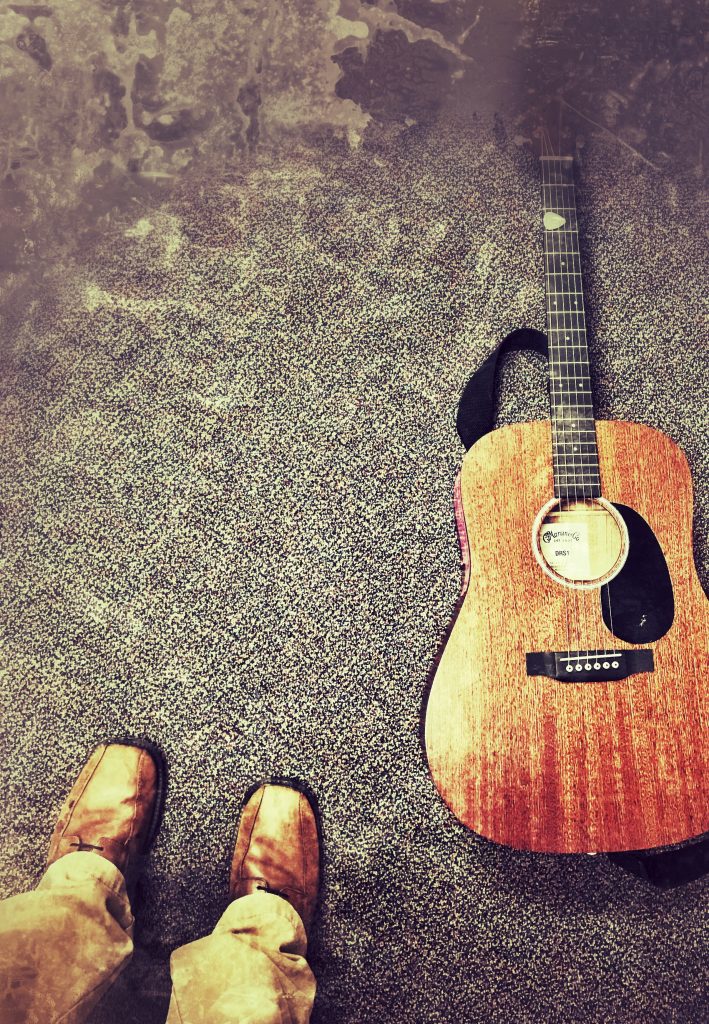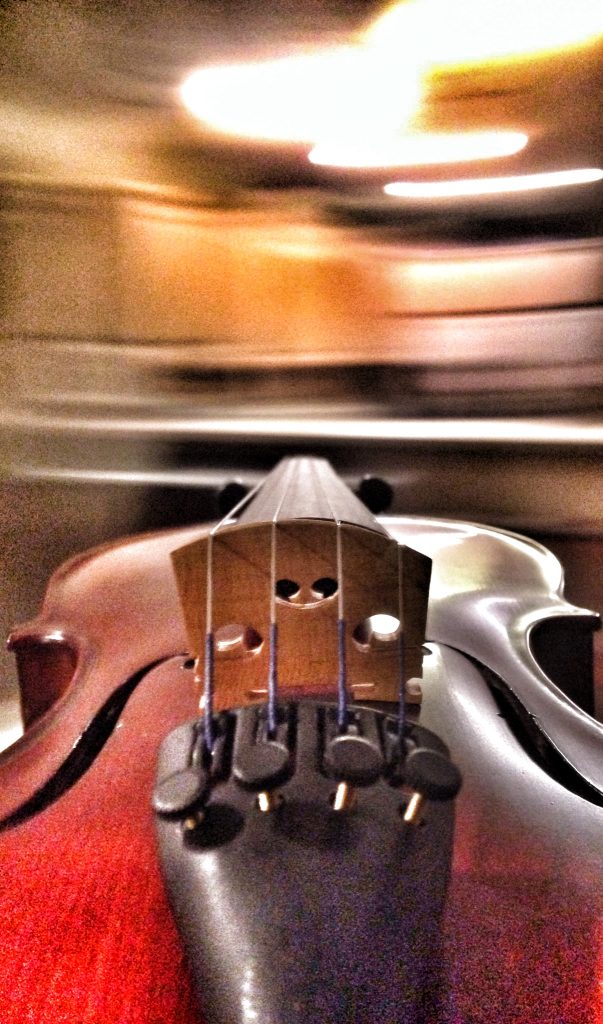
Calling musicians and creatives. Throughout history, some of the hardest times have produced some of the most thoughtful and creative music. Wars have accompanied art; revolutions, beauty; hardship, delight. I’ve seen many write about and personally wrestled with just how bad 2020 is. What I’d like to ask is for the artists to sit down with their scribbled napkins, post-it notes, recordings and scrawled journals, pick up your instruments and let your hurt and angst, frustration and fears, delight and longing for love and better days – let it emerge through your notes and phrasing, pitch and chords, volume and rests.
Franz J. Haydn was 24 at the start of the 7 Years War, arguably the First World War, where 853,000 soldiers died across five continents.
Mozart was born in January of the same year (1756), so he came of age during the fear and death of that time. How much of his music was born out of the pressure and concern surrounding his world at that time?
When Beethoven was 22, he left Bonn when fears of the French invasion were growing. In his thirties, he wrote Symphony No. 5 while struggling with deafness and with Napoleon’s troops nearly outside his door, occupying his city of residence: Vienna. The Pasqualati House where he lived was/is at the center of Vienna, and 2 miles from the Danube, just 45 miles from the cite of the Battle of Dürenstein (1805), where 35,000 battled and about 8000 soldiers were killed or wounded in one day.

Rimsky Korsakov composed in Russia during family crises (the serious illness of his wife, one son, the death of his mother, illness of his youngest child and the fatal illness of another child – 1890), national crises of wars, oppression, hardship and pre-revolution.
In India, Hindustani music was powerfully shaped in the 1200s, by Amir Khusrau, who wrote poetry from a young age, only to be further developed through the hardships of his involvement in war – writing music and elegies (poetry of grief and lament) or songs of praise for various individuals and battles. Khusrau is credited with creating 6 genres of music (khyal, tarana, Naqsh, Gul, Qaul, and Qalbanafor). (The tabla, two drums played together, may have its origins in Indian war drums.)
In the US, much of the musical origin of spirituals, and gospel music come from the hardship of African slaves who preserved their rich cultural and musical past in their hearts, even as they endured the horrors of American slavery and oppression. One historian wrote about the “hush harbor,” where slaves who had become Christians, would retreat to a cabin, close doors, drench blankets with water, and sing out their prayers and worship into iron pots on the ground. Their hearts and their cries of worship and desperation found voice through music.
I’ll leave to others to describe the overwhelming connections between the origins of blues, jazz, rock and roll, the hippie music of the 1960s and 70s. If you look past the immorality (from a Christian perspective; mine) and other behavioral problems that accompany each of these music styles and cultures, considering the various social settings from which they each emerged allows us to see that musical creativity and expression often overflow from the human soul’s response to pressures. War, violence, death, lost love, racism, oppression, corruption, deception, revolution, stereotypes, disease, despair; each of these are like hands that squeeze our souls, but the sands of creativity will not be held back.
This pattern is not limited to songs and sounds either. Lewis and Tolkien, two of my favorite authors, were also marinated in war, struggle and hardship! Theirs, and the creativity of many others, were honed through fear, death and the soul’s strivings in this fallen world. So, authors too, your services are requested in this dark hour. Still, for now, to the musicians I make this request: feel deeply the pain and sorrows of 2020. Like the Psalmists of the Holy Bible, feel the pains of life in this, our painful now. Feel, grieve, and write. When you do, you help all of us to touch the oft-elusive and invisible pains inside so we can turn our eyes heavenward with hope, longing and wonder.
Perhaps, in our grieving and hoping we will also find God grieving with us then helping our hurting and answering our longings; but that is for another time.
Notes:
Anderson, E. ed.. The Letters of Mozart and His Family. (London: Macmillan, 1938): vol 3. Pp. 1183-5.
Barry, Barbara R.. The Philosopher’s Stone: Essays in the Transformation of Musical Structure. (United States, Pendragon Press, 2000).
Newton, Arthur Percival. The Cambridge History of the British Empire. United Kingdom, At the University Press, 1940.
The Garland Encyclopedia of World Music: South Asia: the Indian subcontinent. (Germany, Garland Pub., 1998).
Gottlieb, Robert S.. Solo Tabla Drumming of North India: Inam Ali Khan ; Keramatullah Khan ; Wajid Hussain. (India, Motilal Banarsidass Publishers, 1993).
Garth, J.. Tolkien and the Great War: The Threshold of Middle-earth. (United States: Houghton Mifflin Harcourt, 2013).
Randolph, Peter. From Slave Cabin to Pulpit. Cited in Pedrito U. Maynard-Reid. Diverse Worship; African-American, Caribbean & Hispanic Perspectives. (Intervarsity Press: 2000)
https://www.bbc.com/culture/article/20170224-the-mysetrious-origins-of-jazz
https://www.history.com/topics/france/seven-years-war
https://www.infoplease.com/culture-entertainment/music/music-timeline
https://www.sarodia.com/story-sarod/
https://en.wikipedia.org/wiki/File:Rimsky-Korsakov_-_flight_of_the_bumblebee.oga
https://en.wikisource.org/wiki/A_Dictionary_of_Music_and_Musicians/Pasqualati#cite_note-5
https://www.scaruffi.com/history/indian.html
https://youtu.be/2QMH_9EzNDo – Sitarist Ravi Shankar’s Aman Manch (National Peace Forum) performed by Daughter Anoushka Shankar
https://www.timetoast.com/timelines/indian-music-timeline
https://youtu.be/SPPdRU18akw – Haydn: The best symphonies
https://youtu.be/KOEX-8GhicU – The Best of Rimsky Korsakov
https://www.youtube.com/watch?v=oGkkusOMFj0 – The Best Jazz Songs of All Time | 50 Unforgettable Jazz Classics
https://www.psychologytoday.com/us/blog/memory-medic/201405/jazz-changes-the-brain
